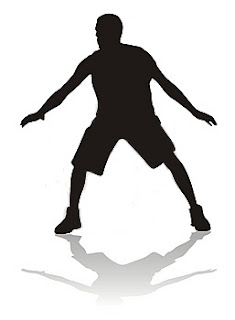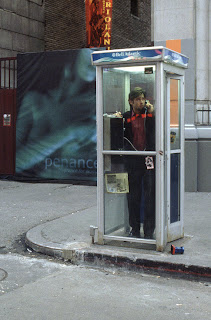Believe it or not, there is a difference between being a good ball handler and a good dribbler. To be a good dribbler you must be a good ball handler, however you can be a good ball handler and not be a good dribbler. In a player's repertoire, both of these fundamentals should be developed to improve their overall skill level.
So which is more important? Being able to dribble through pressure and fake out multiple defenders with creative dribble moves or being a good ball handler and not turning the ball over and not letting the defender steal the ball, even if it means picking it up when hands are slapping and clawing at you.
Let's first analyze the concept of being a good ball handler. In a typical basketball game between two very competitive teams that are well coached and is being played with a high level of intensity, players will encounter themselves in many sticky situations.
For example, full court defensive pressure will change the speed of the game. The offensive team will hopefully become a passing team in order to move the ball faster down the court and avoid the many traps that the defense would like to see happen. That is when good hard and fast passes will be made. Each player on the court will need to be able to take very limited dribbles, pick up the basketball quickly and make a strong and accurate pass to their teammate. If you are having difficulty catching and/or grabbing the ball from a dribble move, you need to improve your ball handling.
Another example could be if you are wide open for an easy layup and you fumble the ball before or after you pick it up to lay the ball in the basket. This could cause you to miss a wide-open layup. The reason is not always because you can't make layups, it could be because you couldn't handle the ball. Having confidence and strong hands are only a couple of characteristics that are necessary to be a good ball handler.
Dribbling is a fundamental art in the game of basketball. Americans above all have and remain trying to perfect this art every second of the day. Thanks to the Stephon Marburys, Allen Iversons and the Rafer Alstons to merely name a few, becoming a great dribbler has begun to sell more tickets. This is a positive for the NBA franchises and a negative for the young aspiring basketball player that is now in the habit of beating the basketball on the floor in a game hoping that something good will evolve from it 10 out of 10 times.
Before I go on, let's make sure we have one thing clear, dribbling is a requirement in the game of basketball if you cannot always make a pass to an open man. Running with the basketball is illegal. Now that we have that out of the way, let's talk about the benefits of dribbling.
How many times have we heard our coaches scream, "MOVE WITH A PURPOSE!!" To be an effective dribbler you must dribble with two intentions:
1. To get your defender off balance
2. To create a means of effectively getting to the basket.
In a game identical to the characteristics of that mentioned above, dribblers will need to stay lower than the defensive player when they dribble and make dribble moves. Speed bursts with the ball and being ready to shoot when the time comes all stem from staying low with your dribble. Because the ball doesn't have much time to bounce before it is back in your hands every time you dribble, it will be harder for defenders to steal the ball and easier for the dribbler to make decisions.
Becoming a better shooter often relates to the fact that you, the player, have become a better dribbler and ball handler.
...Call a TO, make adjustments, consider the above.
SwinsBasketball
Phone: (862) 234-0511
Email: swinsbasketball@gmail.com





